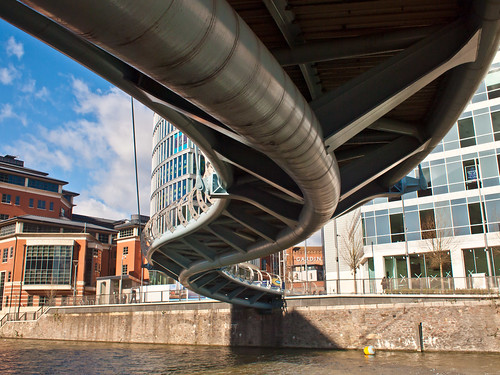The coronavirus has hit the City University of New York, where I teach, hard: more than 20 deaths of students, faculty, and staff, and counting. Yet the impact of the virus on CUNY has received almost no press coverage at all.
At the same time, the media continues to focus its higher education coverage, during the coronavirus, where it always has: on elite schools.
The combination of these elements—the unremarked devastation at CUNY, the outsized attention to wealthy colleges and universities—led me to write this piece for The New Yorker online:
It seems likely that no other college or university in the United States has suffered as many deaths as CUNY. Yet, aside from an op-ed by Yarbrough in the Daily News, there has been little coverage of this story. Once known proudly as “the poor man’s Harvard,” CUNY has become a cemetery of uncertain dimensions, its deaths as unremarked as the graves in a potter’s field. Â
The coronavirus has revealed to many the geography of class in America, showing that where we live and work shapes whether we live or die. Might it offer a similar lesson about where we learn?… Â
During the Depression, the New York municipal-college system opened two flagship campuses: Brooklyn College and Queens College. These schools built the middle class, took in refugees from Nazi Germany, remade higher education, and transformed American arts and letters. In 1942, Brooklyn College gave Hannah Arendt her first teaching job in the United States; an adjunct, she lectured on the Dreyfus affair, which would figure prominently in “The Origins of Totalitarianism.” In the decades that followed, CUNY built more campuses. Until 1976, it was free to all students; the government footed the bill. Â
What prompted this public investment in higher education was neither sentimentality about the poor nor a noblesse oblige of good works. It was a vision of culture and social wealth, derived from the activism of the working classes and defended by a member of Britain’s House of Lords. “Why should we not set aside,” John Maynard Keynes wondered in 1942, “fifty million pounds a year for the next twenty years to add in every substantial city of the realm the dignity of an ancient university.” Against those who disavowed such ambitions on the grounds of expense, Keynes said, “Anything we can actually do we can afford.” And “once done, it is there.” Â
Public spending, for public universities, is a bequest of permanence from one generation to the next. It is a promise to the future that it will enjoy the learning of the present and the literature of the past. It is what we need, more than ever, today. Sending students, professors, and workers back to campus, amid a pandemic, simply because colleges and universities need the cash, is a statement of bankruptcy more profound than any balance sheet could ever tally.
Since it came out on Thursday, I’ve learned of three additional deaths at CUNY, all students in their last year at Lehman College: Daniel DeHoyos, Zavier Richburg, and Lenin Portillo. The Lehman College Senate has voted that they all be awarded posthumous degrees. That brings the total number of deaths at CUNY that I know of to 26.
Speaking of the activism of the working classes, I also wrote for The Nation an essay on the communist, which doubles as a review of Vivian Gornick’s classic The Romance of American Communism, which has recently been reissued, and Jodi Dean’s excellent work of political theory, Comrade.
The communist stands at the crossroads of two ideas: one ancient, one modern. The ancient idea is that human beings are political animals. Our disposition is so public, our orientation so outward, we cannot be thought of apart from the polity. Even when we try to hide our vices, as a character in Plato’s Republic notes, we still require the assistance of “secret societies and political clubs.” That’s how present we are to other people and they to us.
The modern idea—that of work—posits a different value. Here Weber may be a better guide than Marx. For the communist, work means fidelity to a task, a stick-to-itiveness that requires clarity of purpose, persistence in the face of opposition or challenge, and a refusal of all distraction. It is more than an instrumental application of bodily power upon the material world or the rational alignment of means and ends (activities so ignoble, Aristotle thought, as to nearly disqualify the laborer from politics). It is a vocation, a revelation of self.
The communist brings to the public life of the ancients the methodism of modern work. In all things be political, says the communist, and in all political things be productive. Anything less is vanity. Like the ancients, the communist looks outward, but her insistence on doing only those actions that yield results is an emanation from within. Effectiveness is a statement of her integrity. The great sin of intellectuals, Lenin observed, is that they “undertake everything under the sun without finishing anything.” That failing is symptomatic of their character—their “slovenliness” and “carelessness,” their inability to remain true to whatever cause or concern they have professed. The communist does better. She gets the job done.
…The left has good reason to be wary of the stern antinomies of the comrade. The freedom that goes by the name of discipline, the suppression of difference in the name of solidarity, the words of emancipation as window dressing for authoritarian constraint—we’ve been down this road before. We know where it ends, and neither Gornick nor Dean denies that ending. Nor do they provide an easy way around or out of it.
Gornick interprets the tragedy of communism through Greek myth. Helen awakens in Paris an intense love, one he never knew before. He is turned outward, directed to another soul in a way he is not accustomed to. He becomes larger than himself. Then the love takes on a life of its own, eclipsing its object. Love becomes the object, the feeling and need; Helen disappears from view. All manner of mayhem and destruction follow. Dean interprets the tragedy through psychoanalysis: The healthy ego ideal of the comrade becomes the ravenous superego. In the same way that the superego feeds off the transgressions of the id, growing ever more powerful from the punishment of impurity, so do comrades turn inward, generating a feeding frenzy of their own. Collective power, once a source of freedom, becomes a prison.
There’s a reason Gornick and Dean turn to myth and psychoanalysis, respectively. Each, in its way, is a story of unhappy endings, in which the conclusion is written from the start. Yet even if we don’t head down the path of authoritarian communism, even if we avoid that unhappy ending, we’re still left with other bad endings that neither psychoanalysis nor myth can account for. Not only has capitalism run rampant since the fall of communism, and not only has the left yet to find a replacement for the parties and movements that once created socialism in all its varieties, but even the contemporary left has not left behind the challenge of reconciling freedom and constraint….
You can read the rest of the piece here.
Since it’s been a while since I posted at Crooked Timber, I thought I’d alert folks to some other writing I’ve been doing recently at the New York Review of Books online: one, a piece on the Iowa Caucuses (remember them?) and minoritarian democracy; and the other, on what the isolation of the pandemic means for democracy.
Hope everyone is healthy and safe.





